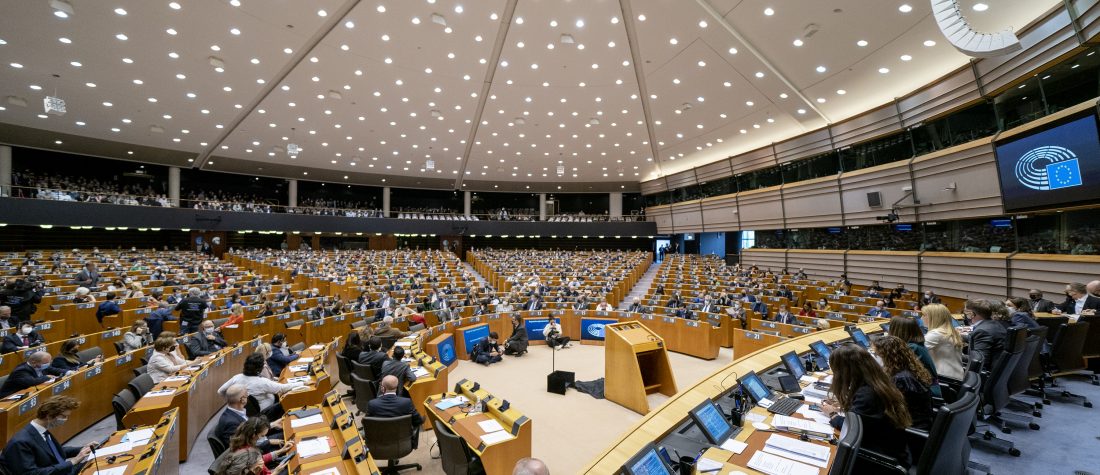Governments across the European Union have faced an unprecedented energy supply shock.
Putin’s illegal invasion of Ukraine has highlighted an uncomfortable truth: we have been complacent in our dependence on Russian oil and gas for far too long. It was inevitable that as soon as Russia began to attack Ukraine, there would be enormous economic and humanitarian consequences. Not only for Ukraine and Russia but for Europe and the rest of the world. One of the biggest disruptions for Europe has been to its energy supply.
Historically, Ukraine has been an important transit country for piping Russian gas to Europe. Once the invasion was underway, supplies of energy to the EU were severely disrupted and the bloc vowed to wean itself off Russian fossil fuels. A painful irony is that whilst Europe attempts to reduce its dependence on Russia’s oil and gas, Moscow is enjoying booming returns on its oil and gas exports as prices, especially for gas, have risen since the war began. Moscow is finding new buyers in energy-hungry Asia which are more than willing to take volumes that would have previously gone to Europe.
But the disruption can be eased if the EU opts for a common-sense approach.
There are two ways to navigate the coming energy-price storm, without pilling pressure on households and businesses who are frankly fed up with their governments telling them to essentially accept the economic hit caused by their policy response to Russia’s aggression.
The first is to implement subsidies either directly to households or through support to energy providers. This has been the preference by European leaders to date. This is creating an eyewatering level of debt, a burden that’s being placed on the shoulders of future generations and compounded by rising interest rates globally.
Not only are subsidy schemes expensive, but they’re also incredibly difficult to unwind. If oil and gas prices don’t fall significantly in late 2023 or even into 2024, the cost to the state, which will be passed onto taxpayers, will keep rising. Even EU member states like Poland, which have taken a targeted approach to support the most vulnerable citizens and critical public services such as hospitals and schools, will eventually be under pressure to increase that support.
The second approach is for the EU to allow national governments to be flexible in their energy mix. That means investing in interim infrastructure to support fossil fuel usage. The European Commission’s Green Deal was already looking challenging to implement before Russia invaded Ukraine. Now, the knock-on impacts of the war have made it a pipe dream. Yet, the restrictive legislation and regulatory burdens linked to new fossil fuel projects remain in place. The time-consuming bureaucracy – relevant permits can take as long as two years to secure – essentially closes off the possibility of immediate and short-term investment. And that’s exactly what’s needed to improve Europe’s energy security, as well as innovative and flexible solutions.
The EU Parliament took a welcome step to recognise liquified natural gas as a sustainable energy source. LNG is significantly cleaner than oil-derived fuels and coal, but demand competition is fierce and, as a result, prices are high. LNG can only be part of the solution to alleviating Europe’s energy crisis. Another key part of the puzzle will be looking at ways to help boost power grids with a cheap supply of electricity for the next 24-48 months. Powerships, floating power plants that can be plugged into a country’s electricity grid, can do this. The vessels, developed by Karpowership, are deployed to wherever they’re needed, plugged in, and start generating electricity using either LNG, biodiesel, or low sulphur fuel oil, whichever is the lowest-cost fuel available at the time. Just one of the company’s powerships can be plugged in to a country’s grid just 30 days after all the necessary permits have been issued. With 2,000 MW of capacity available today, such floating power stations can keep the lights on for around 2 million homes. And when they are no longer needed, the vessels are simply re-deployed elsewhere, leaving a minimal environmental trace.
There is a desire by some EU policymakers to view the bloc as one entity in times of crisis. However, this leads to poor policymaking and doesn’t take into account the differing needs of individual countries. With energy, in particular, every member state has a different supply mix and therefore a unique starting point for tackling the problem. Each individual country should be allowed to set the pace of its own energy transition for that reason.
Poland is a great example of an EU member that has very different energy needs from other nations. The country’s economic and political sovereignty was only secured in 1989 and it remains heavily reliant on coal. In contrast, the situation in, for example, France – a nation highly dependent on atomic energy – is very different. The immediate challenges facing member states need to be solved by national governments, and the European Commission should show pragmatism. Creative solutions offered by companies such as Karpowership need to be prioritised as part of the solution to keeping Europe’s light on and its homes warm.
It’s the very least that the bloc’s citizens deserve.
Ryszard Czarnecki is a Polish Member of the European Parliament


